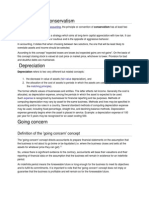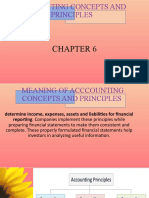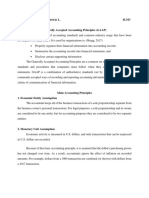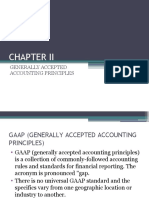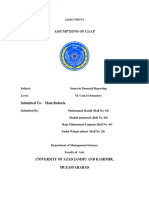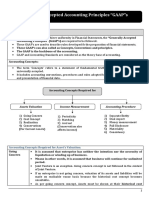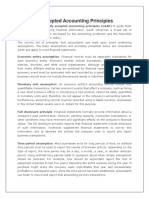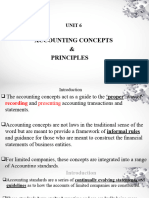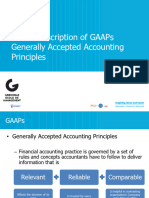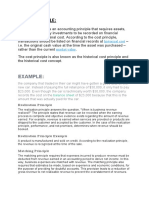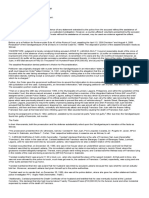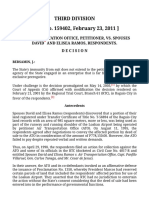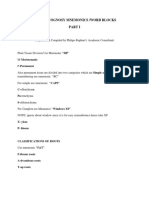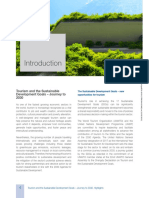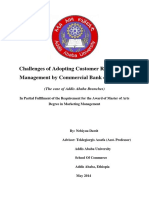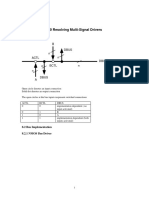GAAP
Generally Accepted Accounting Principles (GAAP) refers to common set of Accounting principles, standards
and procedures that companies/businesses and their Accountants should follow when they prepare the
financial statements.
Why are GAAP principles or concepts important for financial reporting?
They are:
Understandable
Relevant
Reliable
Useful
Timely
Verifiable
Neutral and consistent
Comparable
GAAP PRINCIPLES
Historical Cost Principle
It is based on the rule that assets will be valued at historical cost. i.e. assets will be
recorded at the amount
that was paid for them at the point of acquisition. Example Land and buildings appreciates in value if
are properly maintained, but they will be recorded at the original cost price. they
Matching
Expenses and income should be recorded in the correct financial period in which they occur. This will
include the expenses or income that has not been received.This means income and expenses are
recorded when they are incurred not when they are received or paid.
Prudence
A business must not overestimate its income, assets and profits and it must not
underestimate its liabilities,
the losses and expenses. This concept is based on the assumption that financial results are
presented in a
conservative manner.
Materiality
All items that are material enough to affect evaluation or decision should be disclosed
separately in the
financial statements.
All values that appear in the financial statements must have material value,
companies can group
smaller items together.
Business Entity
The financial affairs of a business are kept separately from the financial affairs of the owner, his
personal
income or expenses should not be recorded in the books of the business.
Going concern
Financial statements are prepared on the assumption that the business will continue to operate within the
foreseeable future. This means the business has resources needed to continue operating as a business
until it provides evidence to the contrary (opposite or bankruptcy).
23
